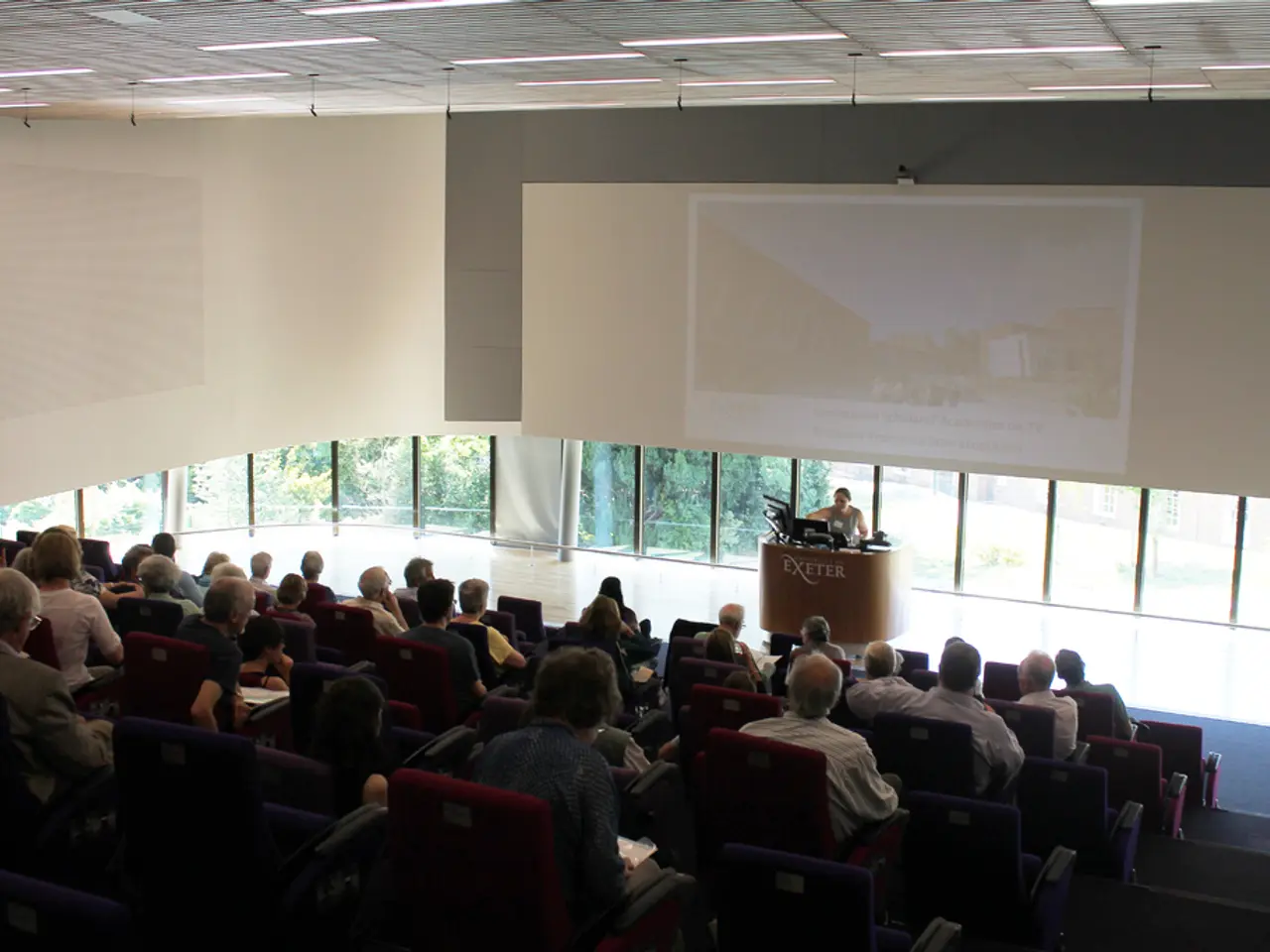A colloquium is a formal discussion or meeting, usually focused around a specific topic, where experts and scholars gather to exchange ideas, debate, and share research findings.
A university colloquium is a formal academic event designed to foster rigorous discussion and knowledge-sharing on specific topics. Here's a guide to help you prepare for a successful colloquium experience.
Structure of a University Colloquium
- Preparation and Research
- Conduct extensive research on the topic(s) to be discussed, engaging with primary texts and relevant critical literature.
- Your research should be evidence-based and well-cited, demonstrating mastery of key concepts and theories related to the colloquium subject.
- Oral Presentation
- Deliver a clear, organized, and articulate presentation that supports a well-developed thesis or argument.
- Presentations typically last between 5-15 minutes.
- Consider using multimedia components to enhance clarity and engagement, and ensure your presentation adheres to academic style guidelines for citations and formatting.
- Discussion and Q&A
- After the presentation, a discussion session allows for questions, critical feedback, and peer engagement.
- This fosters intellectual exchange and the refinement of arguments.
- Written Component (Optional)
- Some colloquia culminate in written essays or reports reflecting individual or group research findings.
Best Practices for University Colloquia
- Organization and Clarity
- Presentations and papers should have a clear, logical structure, including introduction, argument development, evidence, and conclusion.
- Use headings and subheadings when appropriate and follow academic writing conventions to ensure precision and coherence.
- Evidence-Based Reasoning
- Arguments must be supported by scholarly evidence from peer-reviewed sources.
- Avoid emotive or unsupported statements; instead, rely on logical reasoning tied to research literature.
- Citing Sources Accurately
- Proper citation of all sources in presentations and written work is essential to academic integrity and intellectual clarity.
- Engagement and Responsiveness
- Be prepared to respond thoughtfully to questions and critiques during discussions.
- Demonstrate openness to diverse perspectives and readiness to consider alternative interpretations.
- Professional Presentation
- Use formal, academic language; avoid slang or colloquial terms except in quotes.
- Be concise, precise, and maintain a professional demeanor throughout the colloquium.
- Collaboration and Peer Review
- When applicable, engage in structured peer review to improve presentation quality and argumentation.
Additional Tips
- Ask your instructors about the evaluation criteria for the event to ensure you meet all requirements.
- It's beneficial to ask your STUWO flatmates for constructive feedback on your presentation.
- Keep to the time limit, prepare a PowerPoint presentation, mark sections you want to mention, answer questions politely, speak clearly and structured, and actively participate in the discussion.
- Avoid giving a longer presentation to avoid questions, overloading the PowerPoint, panicking if you can't answer a question, reading from notes, and avoiding eye contact.
- For more tips, ask instructors directly or find more helpful tips for oral exams.
In exam discussions, it's important to master the entire exam material perfectly. Questions may include why the topic was chosen, why a certain method was used, the compatibility of results with other studies, the impact on current or future research, and open research areas.
It's beneficial to think about potential questions during your preparation for a colloquium. Asking other students about old questions or experiences with a specific lecturer can be helpful for exam discussions.
The student housing association also offers tax tips for students and mindfulness training for students. For more information, please refer to their contact details provided.
Participants in university colloquiums should focus on education-and-self-development by preparing extensively for their presentations, engaging with primary texts, and utilizing academic writing conventions to promote clarity and intellectual exchange. Learning from the discussion and Q&A session is crucial for refining arguments and broadening one's perspective on a given topic.




